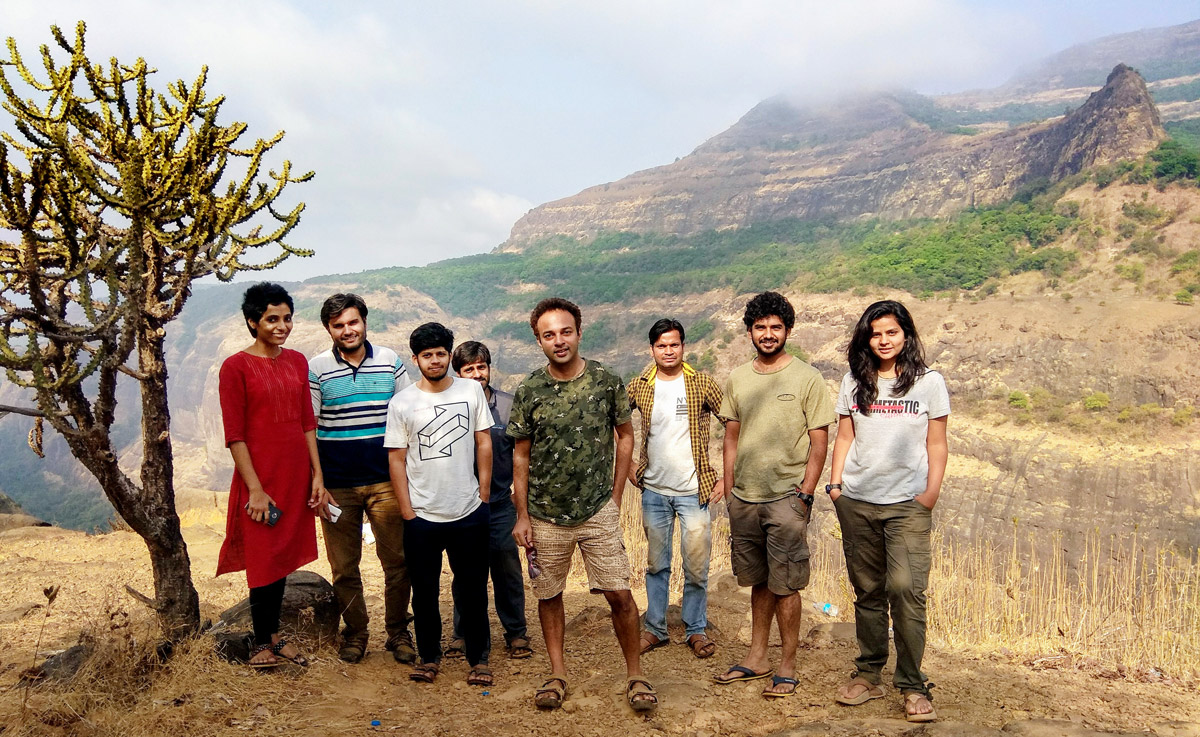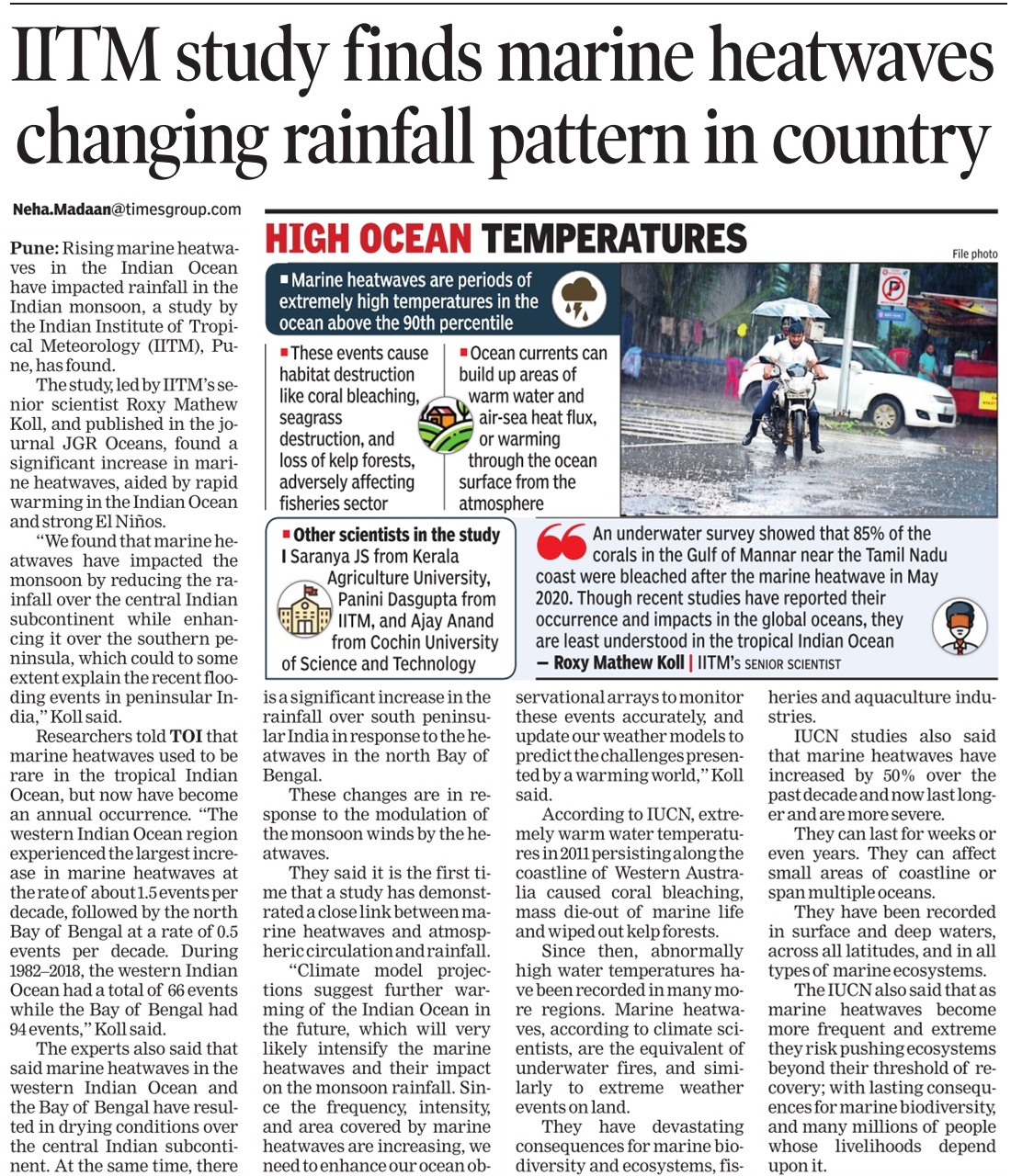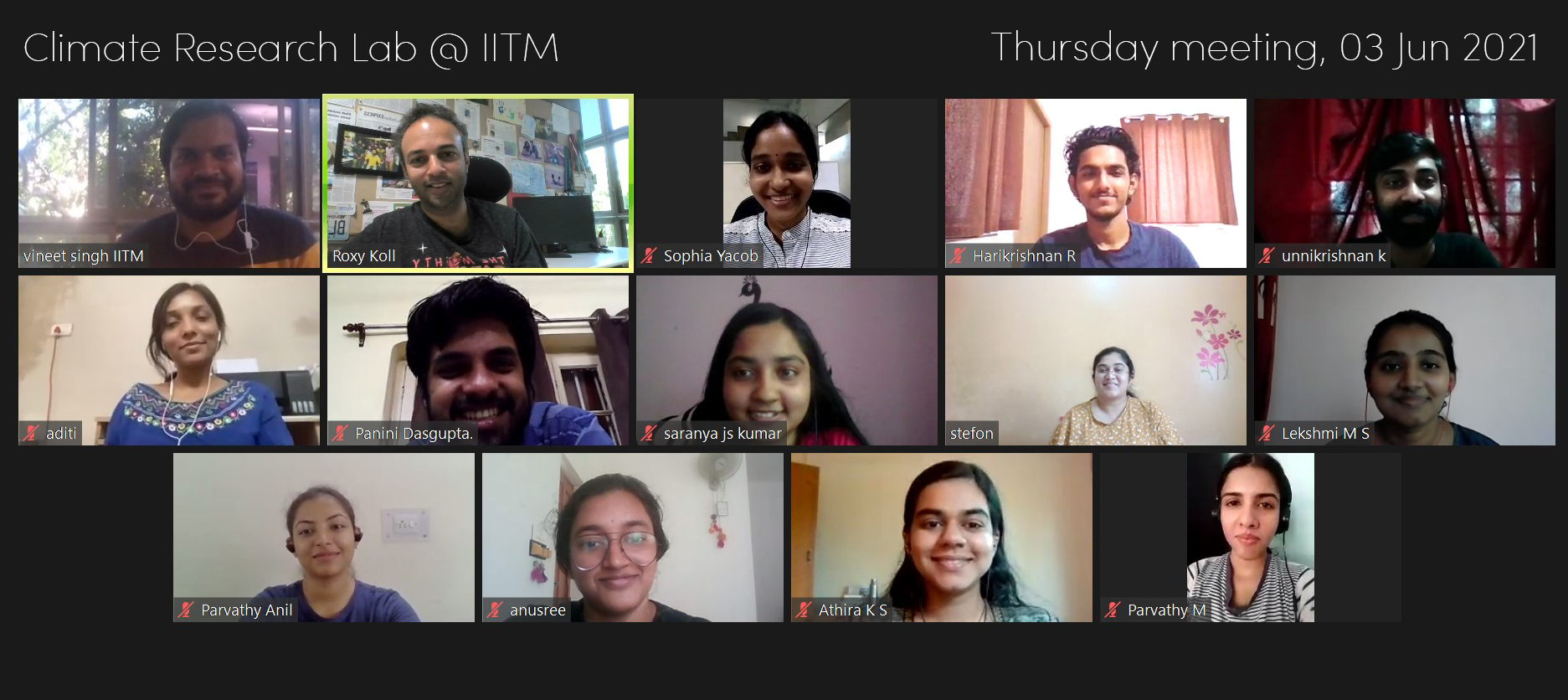Here are some general guidelines to make the best out of our Climate Research Lab.
Thursday meetings
Weekly meetings are important for you to share your work updates and learn and discuss with other group members. It also allows you to improve your understanding of science and sharpen your presentation skills. This is also the time for you to present any general grievances regarding your research life.
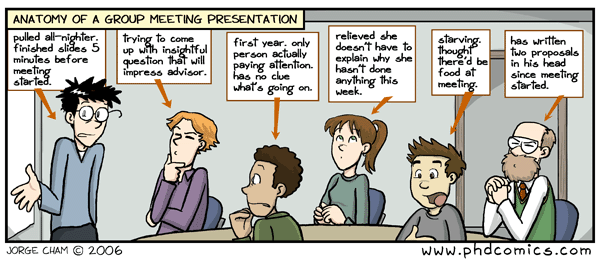
Every Thursday at 3 PM, we will have our group meetings in the CCCR seminar room. You will be present in the room on time and make sure that the projector and presentations are ready. Notify me in advance if you will be absent or are arriving late. Though the environment is casual, a lack of dedication will be noted. If you are constantly late—or engrossed in your mobile phone or laptop during the meetings, you will be dismissed.
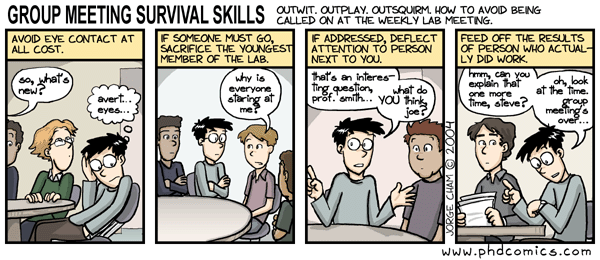
Respect our time and comments, which we share with you. Many times it happens that you forget to incorporate the changes, and we have to repeat it for you. Bring a notebook and pen, and write down comments and suggestions.
Thursday meetings are followed by some fun tea-time at the canteen. This is part of team building, and you are encouraged to interact with everyone in the group.
Remember to email me a copy of your presentations, this will go into an archive of your research work.
No spoon-feeding at our lab
I cannot teach anybody anything. I can only make them think — Socrates
Whether you are a Masters or a PhD student, don’t expect your advisor to devise your research problem and do it for you as well! Our group promotes independent thinking and research, which will enable you for your scientific career. There is no spoon-feeding, which is a common trend in India. Also, I will not be after any students compelling them to work and present their results. If you discuss and present your work with me periodically, your research will also progress steadily. You all are adults, so plan and organize your thesis work so that you can finish it on time. You can present your research work during our Thursday meetings or during personal discussions. You will then get advice and feedback from other group members and me.
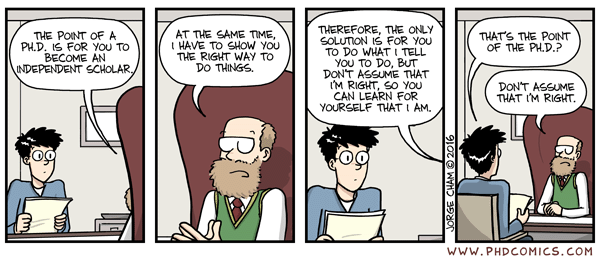
Collaborations
Being part of our team gives you a good chance to interact with other members. We have a balanced team with complementary skills. Hence, make the best use of this situation to collaborate and improve your own skills. You are also encouraged to interact with other scientists and students at IITM or elsewhere. Remember that you reap the best out of science through fruitful collaborations. Collaboration does not make you dependent, it is the other way. You get a chance to refine your science, learn new skills and participate in teamwork—which makes you an independent researcher and, at the same time, a team player for the future.
Attend IITM seminars, even if it is not exactly your area of interest. You might learn new techniques or science or even presentation styles that you can utilize in your own research.
Thesis and manuscript writing
This is your research, your thesis. You are in charge of it. I will not write it for you.
Start writing your thesis as soon as you start with our group. Keep a daily log (doc file) of your analysis, with figures and a line noting what it is, and probably an important part of the code which you have used. This will help you in the long run. When you prepare your thesis, it will be easy for you to go through your work history and pick those which are important for you to present.
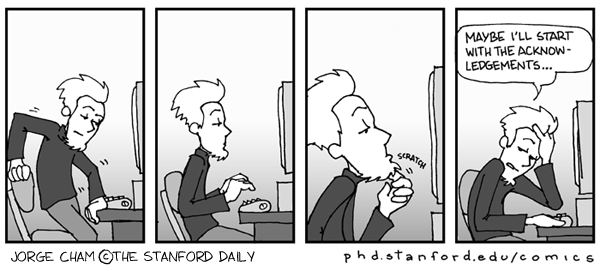
There are multiple tools for spell-checking and cleaning up grammar. Please use them before bringing your thesis to me. If your manuscript contains careless mistakes, I will send it back. I encourage you to attend the science communication classes at IITM, which are held annually. If you still are not confident about your writing, show your first drafts to other student members for feedback. Also, note that we have zero tolerance for plagiarism.
Please do not think that if you present a half-hearted half-cooked work, I will turn it into a scientific paper for you. If you do good work and write, you get the paper—it is as simple as that.
Finally, when comments and edits are made on your manuscript, try to understand them. Do not just accept all the edits and send them back. Look for similar errors elsewhere in your manuscript. Use the same suggestions to improve each line of your manuscript. Learn from each cycle of revisions and improve your skill in scientific writing. Note that there are several cycles of revisions, so start early.
Deadlines
Very often I get reports, proposals, manuscripts, abstracts, and thesis at the last moment. Please be clear that it does not work that way. Note that whether it is a manuscript or thesis, you must first convince me that your work is qualified. For example, merely using LaTeX or adhering to journal style or university regulations will not make your work qualifiable. This requires detailed scrutiny from my side, which will take time.
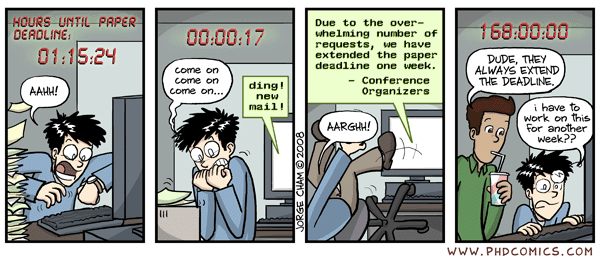
Note that I have a tightly packed schedule, so it may take me time to go through your work. Hence, plan and prepare your documents well in advance. Also, note that I have a family. Evenings, night time and weekends are generally for rest and family. Please do not keep sending me WhatsApp messages to review your documents.
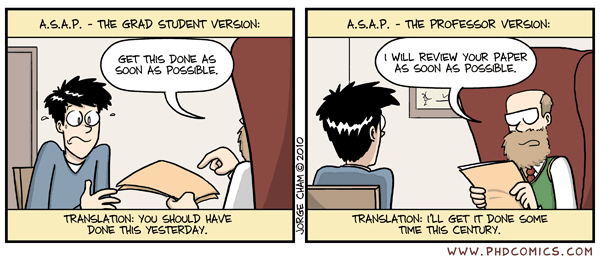
Send the first draft of your PhD thesis at least 2–3 months in advance. If it is a Master’s thesis, send it at least 1 month in advance. Applications for fellowships, abstracts and such short documents should be sent at least 2 weeks in advance.
Interaction with your Advisor
My room is always open for you, but please respect my time and space. You do not need to make an appointment, but it will be good to cross-check if I am free at a particular time for you to discuss. When I am away, I prefer email communication and may not always answer your professional queries through WhatsApp, other than in exceptional cases. Our team does have a WhatsApp group for light scientific talk and fun between team members. Use it to your best!
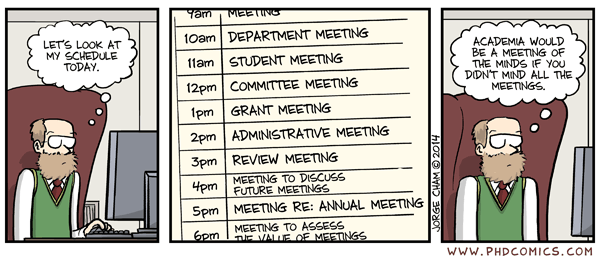
Email etiquettes
Oftentimes, I get emails with a bunch of figures thrown in. No text in the email, no signing off, no caption or interpretation. Occasionally I wonder if these emails are addressed to me. Note that I will not respond to such emails.
When you send an email to your advisor—or anyone at all:
(a) Please address or greet the person and then prepare the body of the email.
(b) Use proper sentences and punctuations. Very often I get emails full of unintelligible chat abbreviations.
(c) I can understand if you get excited with your figures and want to show them asap. Organize these figures in a ppt or doc file with captions and interpretations. Don’t throw a bunch of figures, and expect your advisor to find the head and tail of it.
(d) Sign off with your name, please.
(e) It is pathetic when I have to teach email etiquettes to a research scholar.
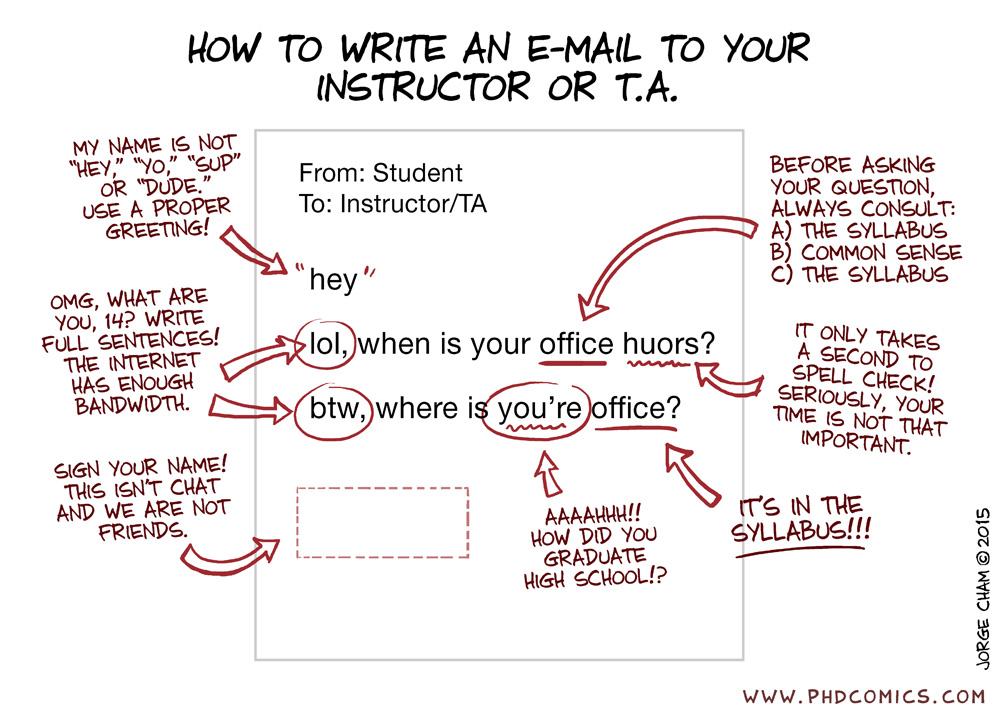
Health
Most of your time is spent in front of the computer. This is a huge shift from your active undergraduate days. Your body might still be youthful, but any carelessness and slack now regarding health will catch up with you later in life.
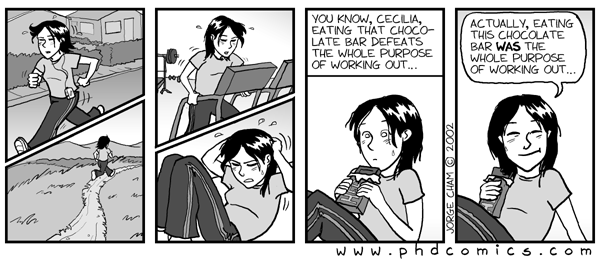
Eat nutritious food on time, sleep well and spend some time for exercise. Run, walk, or cycle for half an hour daily, or do some aerobics or dancing. It will improve your daily performance, quality of your life, and of the science you do.
Monthly Dinner and Annual Camping
We have some fun outdoor also. Occasionally we go for dinner outside to chill and take a break. We go camping once or twice a year, have a beer and watch the night sky. These happy memories will stay with you forever.
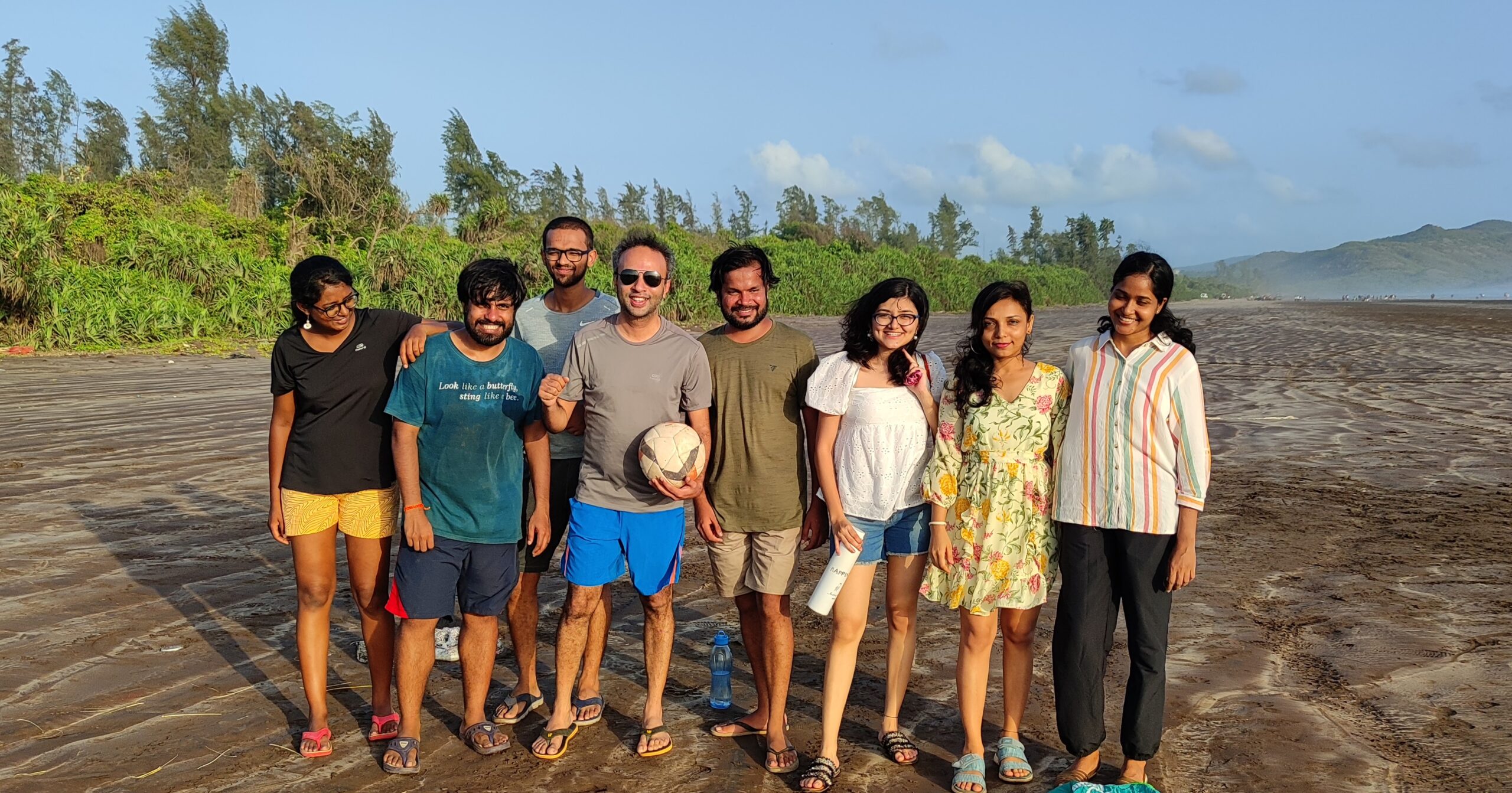
Images: PhDComics

